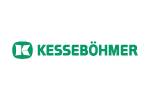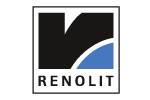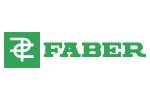In the evolving world of home interiors, the kitchen has transformed from a mere cooking space to the heart of the home—a multifunctional area where cooking, entertaining, and family bonding converge. At the forefront of this transformation is the modular kitchen—a design innovation that combines aesthetics, functionality, and efficiency.
Whether you're renovating your existing kitchen or setting up a new one, understanding the features and advantages of modular kitchens can help you make an informed decision. Let's delve into why modular kitchens are becoming the preferred choice for homeowners worldwide.
What Is a Modular Kitchen?
A modular kitchen is a pre-manufactured kitchen layout consisting of pre-made cabinets or modules of various sizes and configurations. These modules are designed to fit together seamlessly, offering flexibility, customization, and efficient use of space. Unlike traditional kitchens, which are built on-site, modular kitchens are assembled with precision in factories, ensuring uniformity and quality.
Key Features of Modular Kitchens
1. Customization to Fit Your Space and Style
One of the standout features of modular kitchens is their customizability. Homeowners can choose from a wide range of materials, finishes, colors, and layouts to create a kitchen that reflects their personal style and fits their space perfectly. Whether you prefer a sleek modern look or a warm traditional design, modular kitchens offer endless possibilities.
2. Efficient Use of Space
Modular kitchens are designed to maximize storage and functionality. With features like pull-out drawers, corner units, and overhead cabinets, every inch of space is utilized effectively. This is particularly beneficial for small homes or apartments where space is limited.
3. High-Quality Materials
The components of modular kitchens are made from high-quality materials such as marine plywood, MDF, and stainless steel. These materials are durable, resistant to moisture, and easy to maintain, ensuring that your kitchen remains in top condition for years.
4. Integrated Appliances
Modern modular kitchens often come with built-in appliances like ovens, microwaves, and dishwashers. This integration not only saves space but also creates a streamlined and cohesive look.
5. Easy Installation
Since the modules are pre-manufactured, installation is quicker and less disruptive compared to traditional kitchens. Most modular kitchens can be installed within a few days, minimizing downtime and inconvenience.
Advantages of Modular Kitchens
1. Enhanced Functionality
Modular kitchens are designed with ergonomics in mind. The layout often follows the "work triangle" principle, ensuring that the stove, sink, and refrigerator are optimally placed for efficient movement. This thoughtful design enhances functionality and makes cooking more convenient.
2. Aesthetic Appeal
With a plethora of design options available, modular kitchens can be tailored to suit any aesthetic preference. From minimalist designs with handleless cabinets to vibrant color schemes, the aesthetic possibilities are vast. This customization allows homeowners to create a kitchen that complements the overall decor of their home.
3. Easy Maintenance and Repair
The modular nature of these kitchens means that individual components can be easily replaced or repaired without affecting the entire setup. This ease of maintenance ensures that any issues can be addressed promptly, prolonging the lifespan of your kitchen.
4. Cost-Effectiveness
While the initial investment in a modular kitchen might be higher than traditional setups, the long-term benefits outweigh the costs. The durability of materials, ease of maintenance, and energy-efficient appliances contribute to cost savings over time.
5. Increased Property Value
A well-designed modular kitchen can significantly enhance the value of your property. Potential buyers often view modern, functional kitchens as a major selling point, making your home more attractive in the real estate market.
Modular Kitchen Layouts: Choosing the Right One for Your Home
Selecting the appropriate layout is crucial for optimizing space and functionality. Here are some popular modular kitchen layouts:
1. L-Shaped Kitchen
Ideal for open-plan spaces, the L-shaped kitchen utilizes two adjacent walls, offering ample counter space and flexibility. It's perfect for small to medium-sized homes.
2. U-Shaped Kitchen
This layout provides three walls of cabinetry, offering extensive storage and workspace. It's suitable for larger kitchens and families who require more storage.
3. Parallel Kitchen
Featuring two parallel countertops, this layout is efficient for narrow spaces and allows multiple users to work simultaneously without interference.
4. Island Kitchen
An island kitchen includes a central island that can serve as additional workspace, dining area, or storage. It's best suited for spacious kitchens and modern homes.
5. Peninsula Kitchen
Similar to the island kitchen but with the island connected to the main countertop, the peninsula layout offers additional workspace and is ideal for medium-sized kitchens.
Sustainable and Smart Features in Modular Kitchens
In today's environmentally conscious world, sustainability is a key consideration. Many modular kitchens incorporate eco-friendly materials and energy-efficient appliances. Features like LED lighting, water-saving faucets, and recyclable materials contribute to a sustainable kitchen setup.
Additionally, with the rise of smart homes, modular kitchens are integrating technology to enhance convenience. Smart appliances, touchless faucets, and sensor-based lighting systems are becoming increasingly popular, offering homeowners greater control and efficiency in their kitchens.
Tips for Designing Your Modular Kitchen
To ensure your modular kitchen meets your needs and preferences, consider the following tips:
-
Assess Your Space: Measure your kitchen area accurately to determine the best layout and size for your modules.
-
Prioritize Functionality: Focus on creating an efficient workflow by placing frequently used items within easy reach.
-
Choose Quality Materials: Invest in durable materials that can withstand daily use and are easy to maintain.
-
Incorporate Adequate Lighting: Ensure your kitchen is well-lit with a combination of task, ambient, and accent lighting.
-
Plan for Future Needs: Consider potential future requirements, such as additional storage or appliances, and design your kitchen accordingly.
Conclusion
A modular kitchen offers a harmonious blend of style, functionality, and efficiency. Its customizable nature, coupled with modern features and designs, makes it a compelling choice for homeowners looking to enhance their cooking space. By understanding the features and advantages of modular kitchens, you can make an informed decision that aligns with your lifestyle and home requirements.
If you're considering a modular kitchen for your home, consult with a professional designer to explore the best options tailored to your needs. With the right design and planning, your modular kitchen can become the heart of your home—a space where functionality meets elegance.












